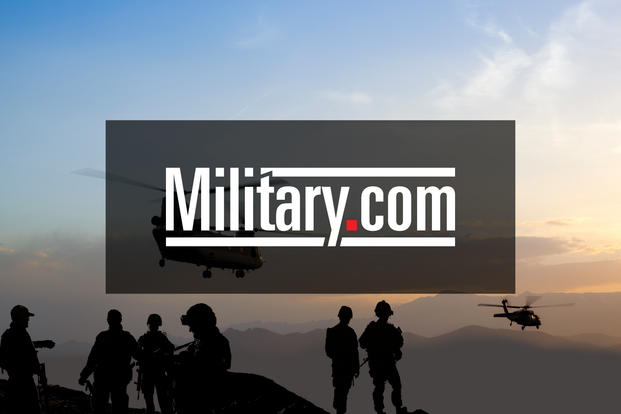The Defense Department plans to add questions about current or past extremist behavior to screening questionnaires given to troops during the accession process, part of an effort to eliminate radicalism from the ranks.
And recruits who provide demonstrably false answers to the questions could find themselves subject to punishment for fraudulent enlistment, according to a Friday memo signed by Defense Secretary Lloyd Austin.
The review and standardization of accession screening questionnaires is one of several actions the Pentagon announced Friday in its anti-extremism effort.
Read Next: 140 Former NatSec Officials Demand 9/11-Style Commission on Capitol Riots
Austin's memo also establishes a new anti-extremism working group, and commissions a study to gauge the scope of how prevalent extremist behavior is in the force.
The SecDef also ordered the department to immediately review and update regulations to better define extremist activities that uniformed troops are prohibited from taking part in.
And service secretaries will update transition checklists for service members who are retiring or separating, to alert them about how they -- and their unique and valuable leadership, organizational, weapons and other military skills -- might be targeted for recruitment by extremist groups.
Concerns about troops possessing extremist views -- such as white supremacist or anti-government ideologies -- have grown in recent years, and gained fresh urgency after the Jan. 6 U.S. Capitol riot. Arrest records show several accused rioters had served in the military.
In early February, shortly after taking charge of the Pentagon, Austin ordered all units to hold stand-downs to discuss extremism in the ranks. Pentagon Press Secretary John Kirby told reporters Friday that, aside from a few units that needed extensions, those stand-downs are largely finished.
But even as the Pentagon reviews what was learned in those sessions, the military will take several immediate steps to address problems, Austin wrote in the memo.
The working group will make sure the changes are put in place and develop additional mid- and long-term recommendations to keep working on eliminating extremism, Austin added.
The working group will study whether the Uniform Code of Military Justice or other related DoD policies and regulations need to be updated to properly address extremist behavior in the ranks.
It will study how the services' existing insider threat programs are handling extremist activity, and find out whether the department needs to do more to help these programs collect and share information with law enforcement and security organizations, as well as commanders and supervisors.
The working group will also review the Pentagon's effort to acquire scalable, cost-effective ways to screen publicly available information during the accessions and vetting process for national security positions.
And it will examine existing training programs on extremism and insider threats to see whether any improvements need to be made.
The group will be led by Bishop Garrison, the Defense Department's senior adviser on human capital and diversity, equity and inclusion. It will have its first meeting on or around April 14, the memo states, and will issue its recommendations within 90 days.
During the press conference Friday, Kirby said it became clear during the stand-down process that troops want better guidance about what extremist activity is. That is one reason Austin stood up the working group and put other changes in place.
"A consistent theme that he heard was a hunger for more information and context about what we're talking about here," Kirby said.
But the memo does not go so far as to ban troops from simply belonging to extremist organizations. Currently, troops are not barred from membership in such groups, but active participation -- such as taking a leadership role or fundraising -- could result in separation or other punishment.
Kirby said Austin wants the working group to study whether such a change needs to be made.
However, because these groups are so malleable and change so quickly, and because radicalization happens in so many different ways, outlawing membership won't be as simple as changing a few words in regulations "with a stroke of a pen," he added.
Kirby stressed that the military is interested in stopping unacceptable behavior and conduct motivated or influenced by ideology, not singling out troops for their religious or other beliefs.
"This is not about being the thought police," he said. "It's not about identifying you as an individual and what's in between your ears. It's about what you do with what's between your ears. It's about the behavior and the conduct that is inspired by or influenced by this kind of ideology."
Kirby said that training departing service members, as part of the transition process, about potential recruitment by extremist groups will prepare them to watch out for such efforts -- "to know what it looks like and what it feels like, what it sounds like when these groups are trying to recruit them."
"When you get ready to leave the service, [we make sure you know] what your medical benefits are, what your educational benefits are, how to buy a new house. There's a whole list," Kirby said. "In some cases, when you retire, they even tell you how to pick a suit and a tie. But there's nothing in there -- not consistently, anyway -- about this particular [extremist recruiting] problem."
Austin also wants the working group to see whether it's possible to better track when troops are kicked out for extremist behavior.
And the working group will look at how much and how consistently the insider threat programs are addressing extremism, Kirby said.
"It is an issue ... that the secretary believes we need a little bit more clarity on, and that's going to take some time," he said.
-- Stephen Losey can be reached at stephen.losey@military.com. Follow him on Twitter @StephenLosey.
Related: 2 Charged with Spraying Slain Officer, an Air Force Veteran, During Capitol Riot












